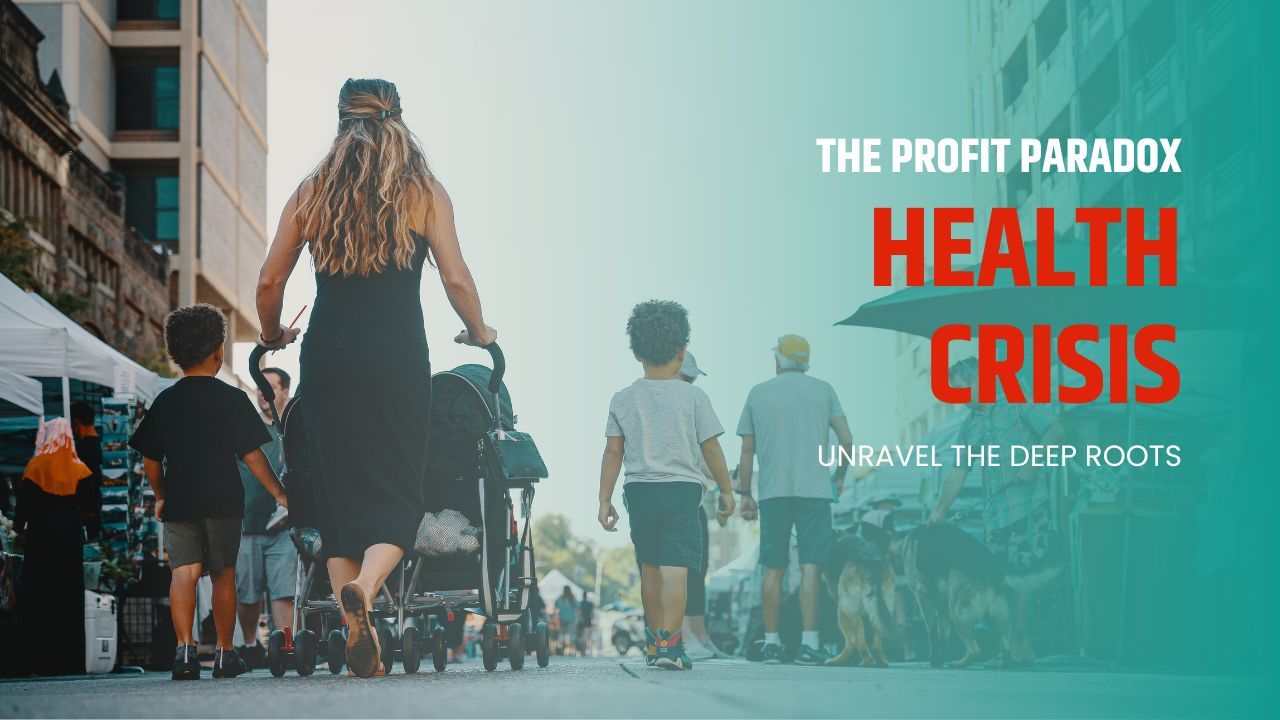Unraveling the Profit Paradox: The Deep Roots of America's Health Crisis
Oct 02, 2023
In our quest for answers, it's time to delve deeper into the complex web of factors that contribute to the profit paradox in America's healthcare system. Beyond fast food, pharmaceutical giants, and the reactive approach to healthcare, there are systemic issues that must be addressed. This blog aims to shed light on these interconnected challenges.
Pharmaceutical Influence:
Pharmaceutical companies wield enormous power and influence in our healthcare landscape. Their business model often prioritizes the development of medications to treat existing conditions rather than focusing on prevention. The more people depend on medications, the greater the profits. This influence extends to lobbying efforts that shape healthcare policies and drug pricing, further perpetuating the profit paradox.
Food Deserts and Nutrition Inequity:
Food deserts, areas with limited access to fresh and healthy foods, are a significant contributor to America's health crisis. In these regions, fast food and processed options often dominate due to their affordability and accessibility. This lack of nutritious choices fuels obesity, diabetes, and other diet-related health issues.
Water Quality and Environmental Impact:
The quality of our drinking water is another concern. Contaminants, such as lead and pollutants, can have adverse health effects, especially in marginalized communities. Ensuring access to clean, safe drinking water is a crucial aspect of preventative healthcare.
Community Disconnection:
The sense of community and social support is integral to individual and public health. However, many residential areas in the U.S. lack the infrastructure and resources to foster community bonds. This isolation can contribute to stress, mental health issues, and an overall decline in well-being.
Insurance Dictating Care:
The insurance industry often dictates the course of healthcare in America. Incentives are aligned with reactive care, as insurers may prioritize cost-effective treatments over comprehensive prevention. This system leaves many without access to crucial preventive measures.
A Call to Action:
Addressing the profit paradox is a multifaceted challenge that requires collective effort. Here's what we can do:
-
Advocate for Policy Changes: Support policies that prioritize preventive healthcare, equitable access to nutritious food, and clean water.
-
Community Building: Foster community connections in your local area. Support initiatives that promote social bonds and well-being.
-
Consumer Awareness: Be mindful of the pharmaceutical industry's influence and make informed healthcare decisions.
-
Education: Promote health education and nutrition programs, especially in underserved communities.
-
Insurance Reform: Advocate for insurance reforms that incentivize preventive care and health maintenance.
Conclusion:
America's healthcare system is at a crossroads, and the profit paradox is a formidable challenge. By addressing the interconnected issues of pharmaceutical influence, food deserts, water quality, community disconnection, and insurance-driven healthcare, we can break free from the cycle of ill health and strive for a healthier, more equitable society.
Let us rally together to prioritize prevention, equity, and well-being. It's time to untangle the web of profit that ensnares our healthcare system and take steps toward a brighter, healthier future for all.
Are you ready to be part of this transformative change?

